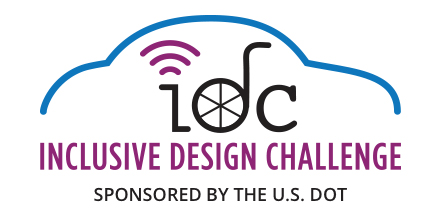HCII Team Named Semifinalist in USDOT Inclusive Design Challenge Researchers Will Develop Prototype Smartphone Interface for Accessible Self-Driving Cars
Byron SpiceThursday, January 7, 2021Print this page.

A team led by the Human-Computer Interaction Institute (HCII) is one of 10 semifinalists in the U.S. Department of Transportation's Inclusive Design Challenge, which seeks to make self-driving vehicles more accessible to people with disabilities.
The 14-member student/faculty team, headed by assistant professors Nikolas Martelaro, Patrick Carrington and Sarah Fox, received $300,000 for its proposal. Their design focuses on using the accessible features of smartphones to enable communication between a self-driving car and a rider. This functionality would allow riders with differing abilities to control aspects of the vehicle and the trip, such as unlocking, opening and closing doors.
Since August, the team members have been working with a community engagement group recruited by Lisa Kay Schweyer, program manager of CMU's Traffic21 Institute and Mobility21, a USDOT University Transportation Center. That group includes people with disabilities, disability rights advocates, transportation officials, automotive suppliers and automotive user experience designers.
Working with collaborators at Propel, a transportation technology and data company, the researchers now have 18 months to develop a prototype interface. The first place team will win $1 million.
Byron Spice | 412-268-9068 | bspice@cs.cmu.edu
